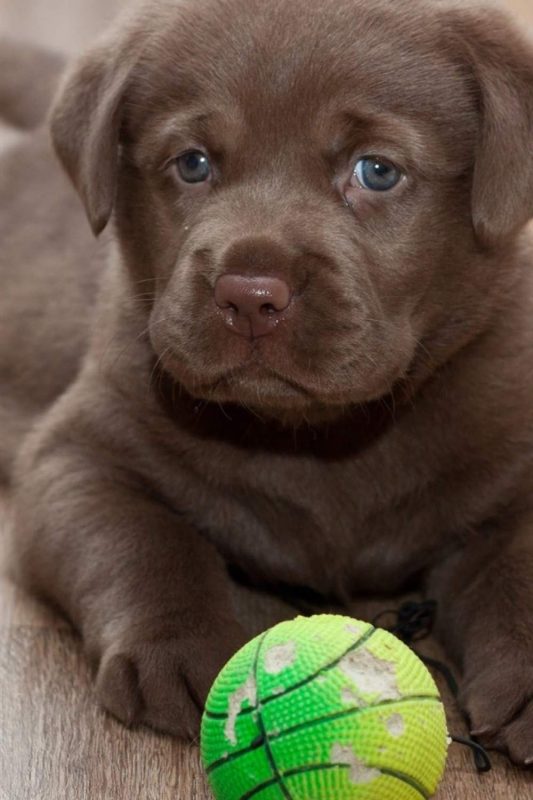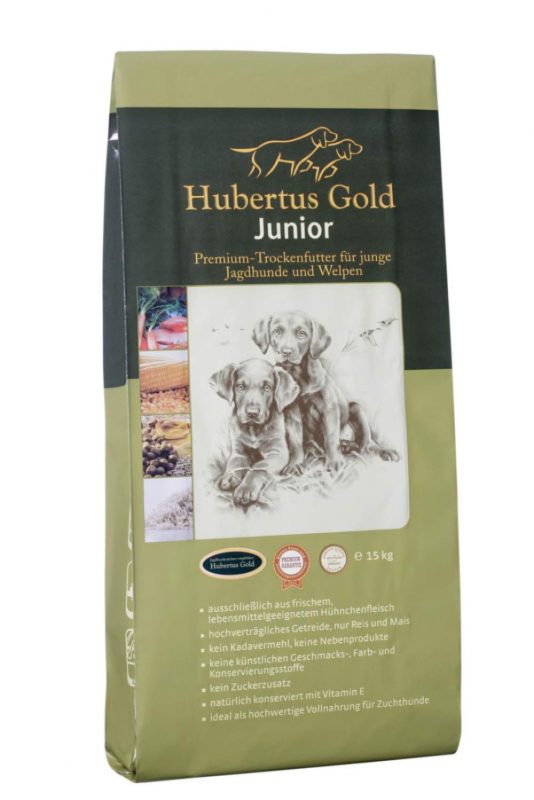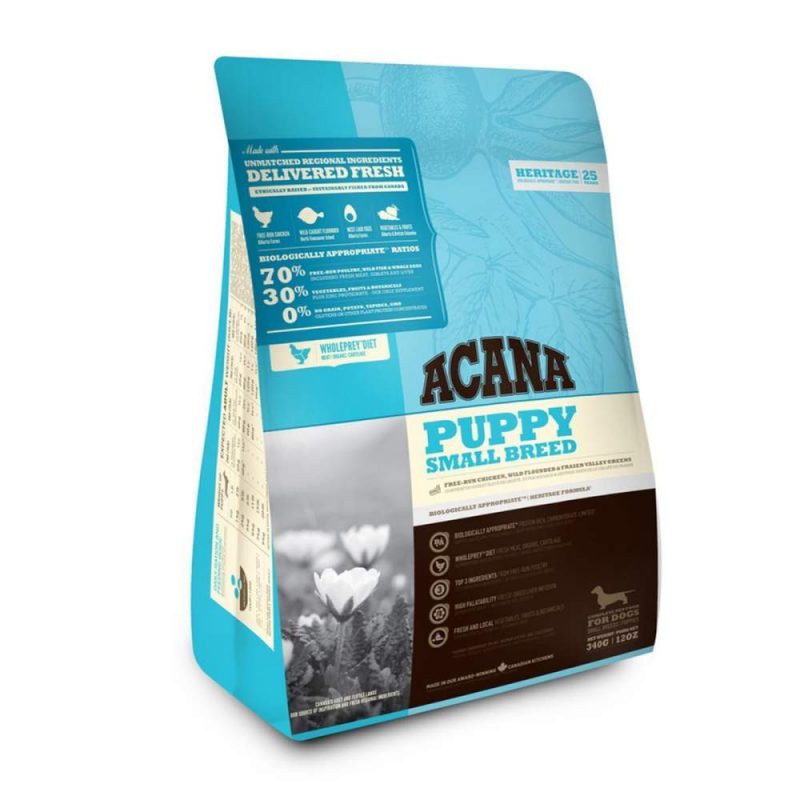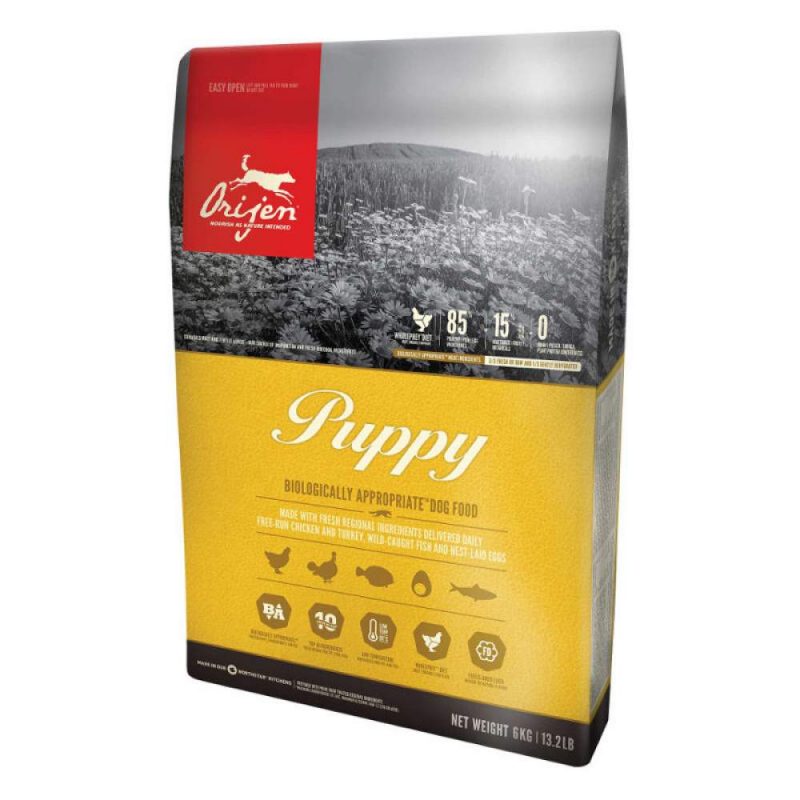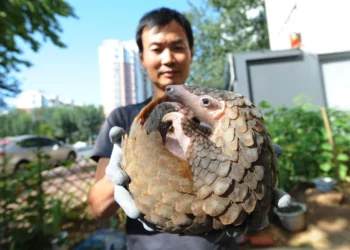Just like babies, puppies need calcium to grow and thrive and for strong bones and teeth. But calcium does more: Calcium is also important for the functioning of muscles and the heart.
Adult dogs
Adult dogs also need calcium, but a lower percentage because they no longer grow. Or – in the case of young adult dogs that have switched from puppy food to adult food – no longer grow as fast.
do small dogs and adult dogs need calcium about the same quantity?
The answer is yes. All dogs need about the same amount of calcium. Only a large dog will eat much more kibble than a small dog. And if the percentage of calcium in the dog food is high, then a large dog will get a lot more calcium in proportion than a small dog.
Back to puppies …
For puppies, it is extra important that they get calcium through their diet. 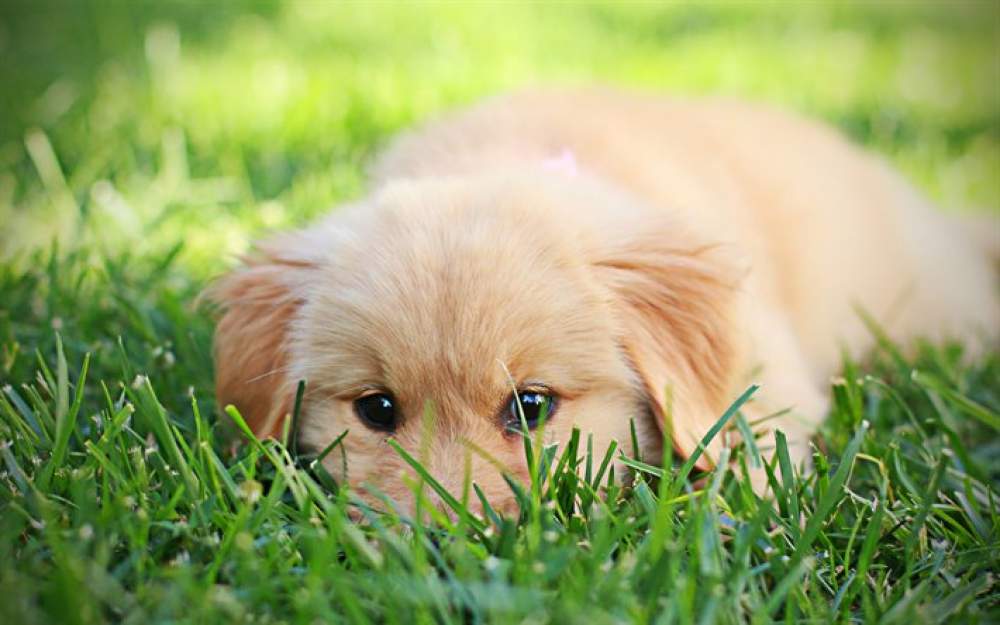
Too little calcium is not good
Too little calcium in puppy food leads to soft and fragile bones. It is therefore very important that puppies get calcium through their puppy food.
Reading suggestions ;Black Dog Names – 400+ Names for Black Dogs
Too much calcium is not good
The only problem is that too much calcium is not good for dogs. This is especially true for puppies, as puppies’ bodies are not yet regulated in such a way that they are over-urinated. Adult dogs can do that on their own, but only if it is natural calcium and NOT calcium from a supplement.
Reading suggestions ; Happy Dog Food Review and Recommendations for 2021
Consequences of too high a calcium content in puppy food
puppies that take in too much calcium grow too fast and this is dangerous, especially for medium and large breed puppies. If a puppy takes in too much calcium, it often causes growing pains (enostosis) or skeletal problems such as HD (hip dysplasia), ED (elbow dysplasia), and OCD (osteochondritis disease). With OCD, pieces of cartilage or bone get into the joint. Older dogs that have received too much calcium as a puppy are also more likely to suffer from joint problems later in life.
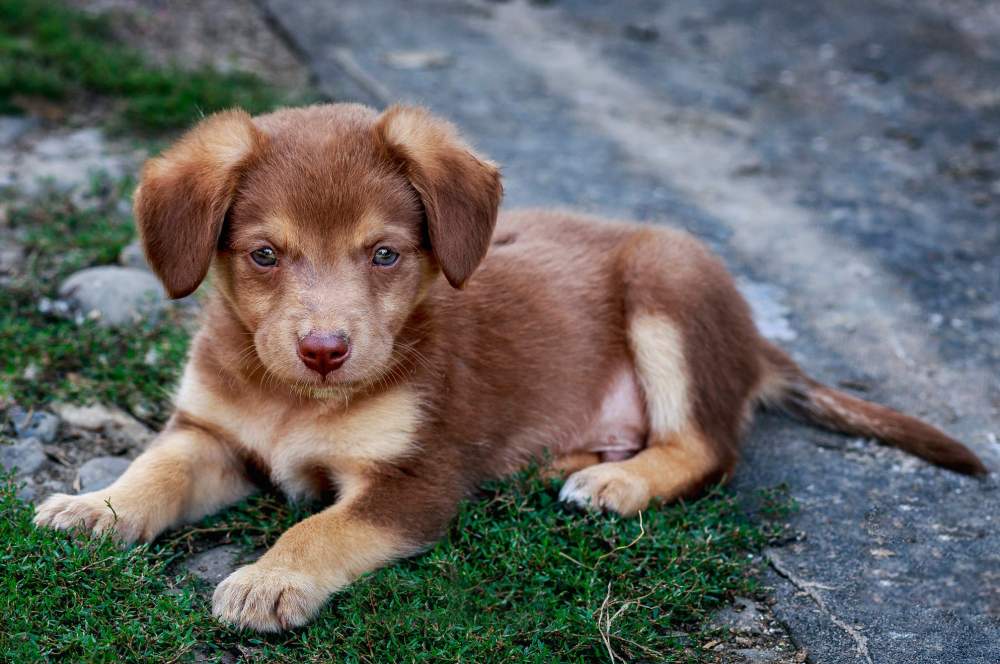
How Much Calcium Is Good For Puppies?
As a rule, you can say that a puppy needs more than 1%, but less than 2% calcium. So between 1% and 2%. The ratio between calcium and phosphorus is also important. The percentage of calcium should be slightly higher than the percentage of phosphorus.
Percentage of calcium on the label
The label of dog food states how much calcium is in dog food. It is good to check whether the stated percentage is between 1% and 2% and whether the phosphorus content is slightly lower than the percentage of calcium. Not much lower, just a little bit lower. So a calcium content of 1.2% and a phosphorus content of 0.9% is fine.
Reading suggestions; How to Introduce your Dog to a New Puppy
A percentage does not say everything …
If you want to do it all right, you have to take into account the amount of food your puppy eats. Because if the dog food has a low metabolizable energy value (if there are few calories in it), then your puppy needs to eat a lot more of that food to fill her stomach, and then she will also receive a lot more calcium. It says a lot more if you calculate the number of grams per 1000 kilocalories.
Between 2 and 5 milligrams of calcium per 1000 calories
You can calculate how many milligrams of calcium per 1000 kilocalories are in the feed. If there is a minimum of 2 grams per 1000 kilocalories but a maximum of 5 grams per 1000 kilocalories in the feed, then you are in the right place.
How do you calculate this?
You take the percentage of calcium and divide it by the number of calories per kilogram. Multiply this by 10,000 and voilà… you have calculated the number of grams per 1000 kilocalories.
Could this be easier?
Yeah… we did the math for all the puppy food we sell. Below you will find all brands followed by the percentage of calcium, the percentage of phosphorus, and the number of grams per 1000 kilocalories.
Hubertus Gold Junior
- Calcium 1.2%
- Phosphorus 0.9%
- 3.04 grams per 1000 kilocalories.

Acana Heritage Puppy Small Breed
- Calcium 1.5%
- Phosphorus 1.1%
- 4.1 grams per 1000 kilocalories
Acana Heritage Puppy and Junior
- Calcium 1.5%
- Phosphorus 1.1%
- 4.1 mg per 1000 kilocalories
Acana Heritage Puppy Large Breed
- Calcium 1.4%
- Phosphorus 1%
- 4.1 grams per 1000 kilocalories

Orijen Whole Prey Puppy
- Calcium 1.4%
- Phosphorus 1.1%
- 3.5 grams per 1000 kilocalories

Orijen Whole Prey Puppy Large Breed
- Calcium 1.3%
- Phosphorus 1.1%
- 3.5 grams per 1000 kilocalories
Go Native Puppy Organic Salmon with Spinach and Ginger
- Calcium 1.85%
- Phosphorus 1.21%
- 4.37 grams per 1000 kilocalories


